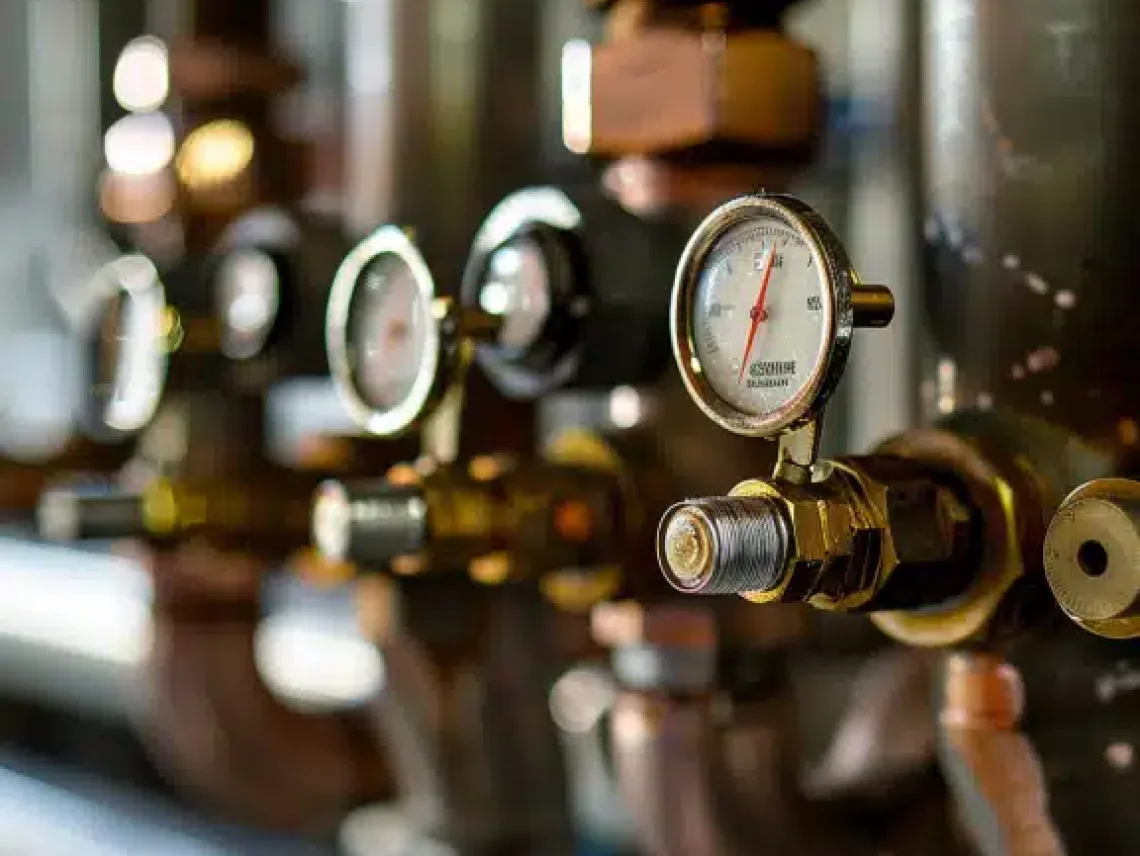The expansion valve and entire HVAC or vehicle AC system should be inspected at least once a year, or every 6 months in harsh conditions. Regular checks prevent costly repairs.

Understanding the expansion valve bad symptoms is critical for diagnosing and fixing AC issues—whether in your home HVAC system or in your vehicle. The expansion valve controls refrigerant flow, and when it fails, cooling performance suffers dramatically.
An expansion valve (also known as a TXV or TEV) meters refrigerant into the evaporator, dropping its pressure and enabling efficient cooling through controlled expansion
Warm Air from Vents
If your AC blows warm air instead of cool even after running for a while it could signal the valve is stuck closed, limiting refrigerant flow (Oards.com).
Frost or Ice Forming
Ice on vents, coils, or compressor indicates the valve is stuck open, flooding the evaporator (Service Workshop Manual).
Inconsistent Airflow or Temperatures
Fluctuating temperatures alternating between warm and cold often point to erratic valve behavior (CarTreatments.com).
AC Compressor Running Continuously
A valve that fails to close can keep the compressor running non-stop, putting stress on system components (Oards.com).
Unusual Noises (Hissing, Whistling, Clicking)
Blockages or partial valve malfunctions can produce audible sounds as refrigerant struggles to pass through (Rick’s Auto Repair Advice).
Refrigerant or Moisture Leaks Around AC Components
Leaks or oily residue near the expansion valve often indicate failing seals or cracks (ElectronicsHub).
System Performance Drops or Complete Failure
Ignoring early symptoms can lead to total system breakdown, requiring major repairs (Rick’s Auto Repair Advice).
Contaminated Refrigerant or Moisture Intrusion: Blockages from debris or moisture can jam the valve.
Age, Wear, or Corrosion: Mechanical wear and rust reduce valve responsiveness.
Overcharged or Undercharged Refrigerant: Incorrect refrigerant levels strain valve operation.
Using Inferior or Non‑Spec Refrigerants: Poor-quality refrigerants damage valve components.
(Source: ElectronicsHub)
Visual Inspection: Look for frost, leaks, or oily residue near the valve.
Pressure Checks: Use a manifold gauge; unusual high-side or low-side readings can indicate valve failure (Service Workshop Manual).
Listen Closely: Hissing or unusual noises at startup often point to restriction or blockage.
Evaluate Patterns: Note temperature inconsistency, continuous compressor operation, or weak airflow—these are red flags.
Early detection of expansion valve bad symptoms saves you from costly repairs and downtime. Stay alert—look for warm air, frost, refrigerant leaks, or inconsistent cooling performance. When in doubt, schedule a diagnostic inspection to protect your HVAC or vehicle AC investment.
Warm air, inconsistent cooling, frost, refrigerant leaks, and odd noises.
Yes, both systems rely on expansion valves to regulate refrigerant pressure and flow.
Unless you have HVAC tools and training, it’s best to let a technician handle the repair.
At least annually for heavy-use systems or vehicles—more often in harsh climates.
The expansion valve and entire HVAC or vehicle AC system should be inspected at least once a year, or every 6 months in harsh conditions. Regular checks prevent costly repairs.
Watch for expansion valve bad symptoms like poor cooling and frost buildup.
Take early action to prevent total system failure.
Use Red River’s educational resources to deepen your HVAC knowledge.
Contact experts before symptoms worsen.
In the realm of industrial solutions, Red River emerges as a pioneer, offering a diverse range of custom-engineered products and facilities. Among our specialties is the design and production of Custom/OEM Pressure Vessels, meticulously crafted to meet individual client requirements, ensuring performance under various pressure conditions. Our expertise extends to the domain of prefabrication, where Red River leads with distinction.
The company excels in creating prefabricated facilities, modules, and packages, reinforcing its stance as a forerunner in innovation and quality. This proficiency is further mirrored in their Modular Skids offering, where they provide an array of Modular Fabricated Skid Packages and Packaged equipment. Each piece is tailored to client specifications, underlining their commitment to delivering precision and excellence in every project they undertake.